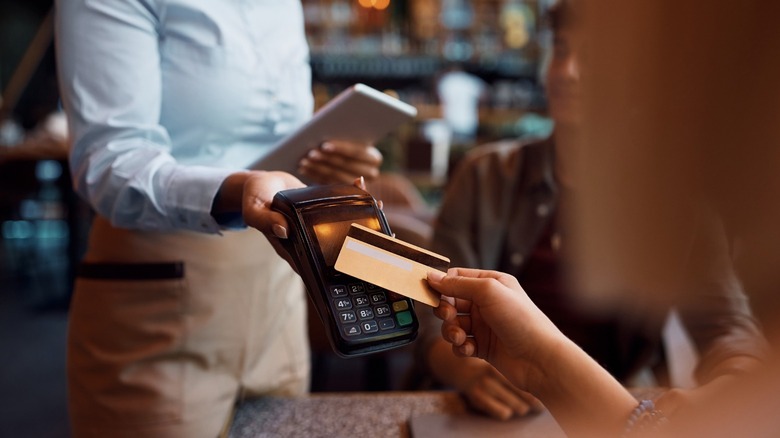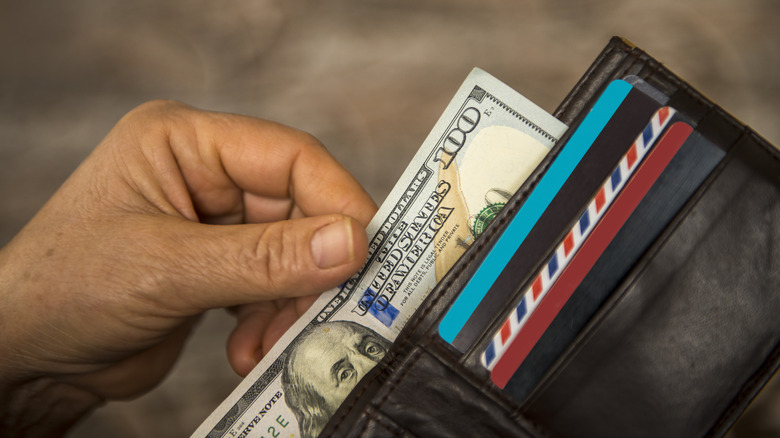The Case For Tipping On A Credit Card As Opposed To Cash At Restaurants
In an oft-repeated line from the short-lived '70s program "Barbary Coast," Cash Canover declares whenever he pays someone, "Cash makes no enemies," expressing a sentiment that finds almost universal agreement amongst servers across the country. Restaurant workers are pretty unanimous in their preference for cash tips. Surely, people who work in food service know better than we do how they feel best appreciated. Servers have seen a lot of bad tipping behavior from guests, and they know what they hate to see, and what matters most. If restaurant staff like their gratuities in cash rather than in credit, who are we to tell them they're wrong?
However, it turns out there's a financial upside when servers are tipped on credit card — they don't have to worry about declaring the tips. Declaring tips means that they count as part of your income, which is important when it comes to collecting unemployment — since unemployment benefits only reflect a person's official salary. Furthermore, social security will be based on your legal income. And last — but not least– your ability to purchase big-ticket items like a house will be affected by the income you report. As such, receiving tips via credit card (rather than cash) may make it easier to report income during those major financial moments.
While some of these things may seem less important to young people or those working in the industry for short stints, for those who stick around, tips and how they're reported can have important effects. This became clear during the pandemic when many were laid off because the difference between reported income and real income became conspicuously important in filing for benefits (per NBC10 Philadelphia).
Giving credit where it's due
In essence, it comes down to the age-old problem of short and long-term gratification. Cash has some real advantages since credit cards charge fees, which are sometimes passed along to their server, meaning that workers get less of their customers' tips — however much they leave. Cash is easy to distribute right away, making it simpler to guarantee that all those working a shift get their fair share. For many, cash income also means more take-home pay, period. Since it's hard to trace cash, if someone chooses not to list all their tips as earnings, it effectively becomes tax-free income. It's illegal, but very difficult for the government to address — and some servers don't mind the trade-off.
For those who want to hold on to their money long-term, credit card tips do come with some benefits. Ironically, the delay in payment that results from credit card payments has an important upside: Since credit tips take longer to receive, they're also harder to spend impulsively. And, tips received via credit card have a black-and-white receipt trail that makes it easier to crunch the numbers when tax season rolls around. Whereas, cash does tend to burn a hole in your pocket, making it easy to blow through a whole night's worth of tips before you even make it home, forgetting how much actually made which could lead to underreporting on your return.

